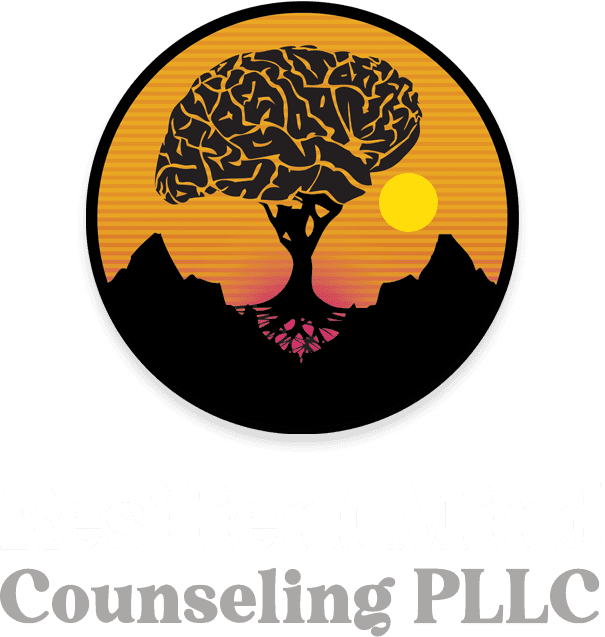In today’s fast-paced world, where stressors seem to lurk around every corner, the importance of mental health education cannot be overstated. From battling daily anxieties to coping with major life transitions, understanding how to nurture our mental well-being is essential for leading fulfilling lives. But mental health education extends beyond personal benefits; it plays a crucial role in shaping resilient communities.
By delving into the intricacies of mental health, individuals gain valuable insights into recognizing and addressing their struggles. Armed with knowledge, they can navigate challenges more effectively, fostering a sense of empowerment and self-advocacy. Moreover, when communities prioritize mental health education, they cultivate empathy, reduce stigma, and create supportive environments where everyone can thrive. Join us as we explore how mental health education is a cornerstone for individual and communal well-being.
Understanding the Foundations of Mental Health
To truly grasp the significance of mental health education, one must first comprehend its foundational principles. This involves exploring the intricate interplay between biological, psychological, and environmental factors that shape our mental well-being. Understanding the basics of neurobiology and psychology can shed light on how our brains function, how experiences shape our thoughts and emotions, and how social factors influence mental health outcomes.
By delving into these foundations, individuals gain a deeper appreciation for the complexities of mental health and the importance of proactive education in promoting well-being.
Recognizing Signs and Symptoms
One of the critical benefits of mental health education is its ability to empower individuals to recognize the signs and symptoms of mental health disorders. From subtle changes in mood and behavior to more overt manifestations of distress, learning to identify these indicators is crucial for early intervention and support.
Mental health education equips individuals with the knowledge to distinguish between typical fluctuations in mental state and potential warning signs of underlying issues. With this awareness, individuals can seek timely assistance for themselves or others, facilitating access to appropriate resources and interventions.
Cultivating Resilience Through Education
Resilience, the ability to bounce back from adversity, is a skill that can be nurtured and strengthened through education. Mental health education provides individuals the tools and strategies to navigate life’s inevitable challenges with greater adaptability and fortitude. Individuals can cultivate resilience as a buffer against the negative impacts of stress and adversity by learning coping mechanisms, stress management techniques, and problem-solving skills.
Moreover, understanding the concept of resilience fosters a sense of agency and optimism, empowering individuals to face obstacles with confidence and perseverance.

Navigating Stressors in Daily Life
In today’s fast-paced world, navigating the myriad stressors of daily life can feel overwhelming. Mental health education equips individuals with the knowledge and skills to manage stress and maintain balance amidst life’s demands effectively. From time management strategies and relaxation techniques to boundary setting and assertive communication, learning to navigate stressors is essential for preserving mental well-being.
By proactively addressing stressors and implementing healthy coping mechanisms, individuals can minimize the negative impact of stress on their mental health and enhance their overall quality of life.
Coping Strategies for Anxieties and Worries
Anxieties and worries are shared experiences that can significantly impact mental well-being if left unaddressed. Mental health education provides individuals with a diverse coping toolkit to effectively manage these challenging emotions. From mindfulness practices and deep breathing exercises to cognitive-behavioral techniques and relaxation therapies, there are numerous approaches to alleviate anxiety and worry.
By exploring these coping strategies through education, individuals can identify which techniques resonate most with them and incorporate them into their daily lives to promote emotional resilience and well-being.
Importance of Self-Care Practices
Self-care is fundamental to maintaining good mental health, yet it is often overlooked or neglected in today’s busy world. Mental health education emphasizes the importance of self-care practices as essential tools for nurturing well-being and preventing burnout. From prioritizing adequate sleep and nutrition to engaging in hobbies and activities that bring joy, self-care encompasses a broad range of behaviors that promote physical, emotional, and psychological health.
By understanding the value of self-care through education, individuals can make intentional choices to prioritize their well-being and cultivate a healthier, more balanced lifestyle.
Destigmatizing Mental Health Challenges
One of the most significant barriers to seeking help for mental health challenges is the stigma that surrounds these issues. Mental health education plays a crucial role in destigmatizing mental illness by fostering understanding, empathy, and acceptance. By dispelling myths and misconceptions, challenging stereotypes, and promoting open dialogue, education helps create a culture of inclusivity and support where individuals feel safe to seek help without fear of judgment or discrimination.
Through education, communities can work together to break down stigma and promote a more compassionate and supportive approach to mental health.

Creating Supportive Environments
Supportive environments are essential for nurturing mental health and well-being. Mental health education helps individuals and communities create environments prioritizing empathy, understanding, and inclusivity. By fostering a culture of support and connection, education promotes resilience and reduces the risk of isolation and loneliness, which are significant contributors to poor mental health outcomes. Whether in schools, workplaces, or communities, creating supportive environments through education ensures that individuals feel valued, heard, and supported in their journey toward mental wellness.
Promoting Empathy and Understanding
Empathy and understanding are potent antidotes to the stigma and discrimination often faced by those with mental health challenges. Mental health education fosters empathy by encouraging individuals to walk in the shoes of others, understand their experiences, and recognize the common humanity that binds us all. Education promotes empathy and understanding and cultivates a culture of compassion and solidarity, where individuals support and uplift one another in need.
Through education, individuals can learn to approach mental health with sensitivity and kindness, creating a more empathetic and inclusive society.
Breaking Down Barriers to Accessing Care
Accessing mental health care can be challenging due to various barriers, including financial constraints, lack of awareness, and stigma. Mental health education is crucial in breaking down these barriers by increasing awareness of available resources, reducing stigma, and empowering individuals to seek help. By educating individuals about the importance of early intervention and destigmatizing help-seeking behaviors, education ensures that everyone has access to the support and services they need to maintain good mental health. Through education, communities can work together to bridge gaps in mental health care and promote equitable access for all.
Building Healthy Relationships
Healthy relationships are essential for promoting mental health and well-being. Mental health education equips individuals with the knowledge and skills to cultivate positive, supportive relationships based on mutual respect, trust, and communication. By exploring topics such as conflict resolution, boundaries, and effective communication, education helps individuals build stronger connections with others and navigate interpersonal dynamics more effectively. Building healthy relationships through education fosters a sense of belonging and connection that enhances overall mental wellness, whether in personal or professional settings.
Enhancing Emotional Intelligence
Emotional intelligence, the ability to recognize, understand, and manage emotions, is critical for navigating life’s challenges and building fulfilling relationships. Mental health education helps individuals enhance their emotional intelligence by providing tools and strategies for self-awareness, self-regulation, empathy, and social skills.
Education empowers individuals to navigate their emotions more effectively and interact with others healthily and constructively by exploring concepts such as emotional awareness, empathy, and assertiveness. Through education, individuals can cultivate emotional intelligence as a foundation for resilience, well-being, and success in all aspects of life.
Empowering Communities Through Education
Ultimately, mental health education empowers communities to take collective action to promote mental wellness and resilience. By raising awareness, reducing stigma, and providing access to resources and support, education mobilizes communities to prioritize mental health as a public health priority.
Whether through school-based programs, workplace initiatives, or community outreach efforts, education empowers individuals to advocate for change, challenge systemic barriers, and create environments that support mental wellness for all. Through education, communities can harness their collective strength to foster resilience, promote inclusivity, and create a culture of support where everyone can thrive.
Conclusion
As we conclude our exploration into the profound impact of mental health education on individuals and communities, it’s evident that knowledge truly has the power to nurture our well-being. From understanding the foundations of mental health to fostering empathy and creating supportive environments, the ripple effects of education extend far beyond the individual, shaping resilient communities where everyone can thrive. At Resilient Mind Counseling, we’re committed to empowering individuals and communities through comprehensive mental health education and compassionate support.
Take the first step towards a healthier, more resilient future by prioritizing mental health education today. Whether you’re an individual seeking resources or a community organization interested in implementing educational programs, Resilient Mind Counseling is here to support you every step of the way. Contact us to learn more about our services and how we can collaborate to promote well-being and resilience in your community. Together, let’s build a brighter tomorrow where mental health education is accessible to all, and stigma is a thing of the past. Your journey towards resilience starts here with Resilient Mind Counseling.




